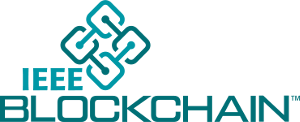Bringing the Blockchain to the Supply Chain: Lessons from Joseph Francis’ IEEE Global Blockchain Summit Keynote
 Joseph Francis of Accenture presented “Supply Chain 2025 Vision with Blockchain” (MP3, 33 MB) at the 2018 IEEE Global Blockchain Summit. This Q&A provides some key takeaways from the presentation.
Joseph Francis of Accenture presented “Supply Chain 2025 Vision with Blockchain” (MP3, 33 MB) at the 2018 IEEE Global Blockchain Summit. This Q&A provides some key takeaways from the presentation.
Why is the supply chain industry a prime candidate for blockchain technology?
From quoting to delivery and returns to everything in-between, the supply chain is all about networks. All of these stacks within the supply chain need to work together for optimization. Today it is very hard for data to be collected and shared across the supply chain to help with critical business decisions. Blockchain technology allows data to be transparent across the whole supply chain from Tier I suppliers to purchasers, so they can look at their supply chain performance and make decisions accordingly.
How can supply chain leverage other emerging technologies such as machine learning and big data in the blockchain?
Business analytics, big data, machine learning, AI and other emerging technologies need indexed structured information in order to make inferences, so these technologies can’t talk to the blockchain directly. Just as Google acts as an index for the Internet making everything searchable, blockchain needs a visibility layer too. It needs an index and information-provoking layer that sits on top of the immutable transaction structure that allows the data to be transparent and searchable. With an index, emerging technologies can share smart insights from the blockchain data.
What are some common concerns for blockchain adoption in the supply chain industry?
When any new technology is introduced hesitancy and concerns arise and blockchain is not immune to this occurrence. One of the first things brought up in the blockchain discussion with companies is they already have “something” in place that works. Many companies are still relying on email or voice ordering, but as the industry moves to demand more real time data, these old technologies won’t keep up. What does blockchain not do better than current offerings? Another concern is that blockchain will not scale. This concern is unfounded; in fact, blockchain has a bright future of scalability. Others bring up that blockchain is a terrible database and you can’t edit it – they are not wrong. Blockchain needs a visibility layer that indexes it and its immutableness is a feature.
How can the supply chain industry adopt blockchain?
To realize the 2025 blockchain vision for the supply chain industry, adoption is needed. There are currently three models for blockchain adoption in the supply chain industry. The first model is everyone in the industry must adopt and use blockchain, which is challenging. The second model is a company decides to implement blockchain technology within their company and then will mandate a few suppliers to adopt it – a company like Google or Walmart could do this. The third model consists of companies purchasing what they need when they need it and communicating to stakeholders when needed.
Interested in learning more about how the supply chain industry can benefit from blockchain technology? Listen now to the 2018 IEEE Global Blockchain Summit keynote presentation “Supply Chain 2025 Vision with Blockchain” (MP3, 33 MB) from Joseph Francis, Accenture.


